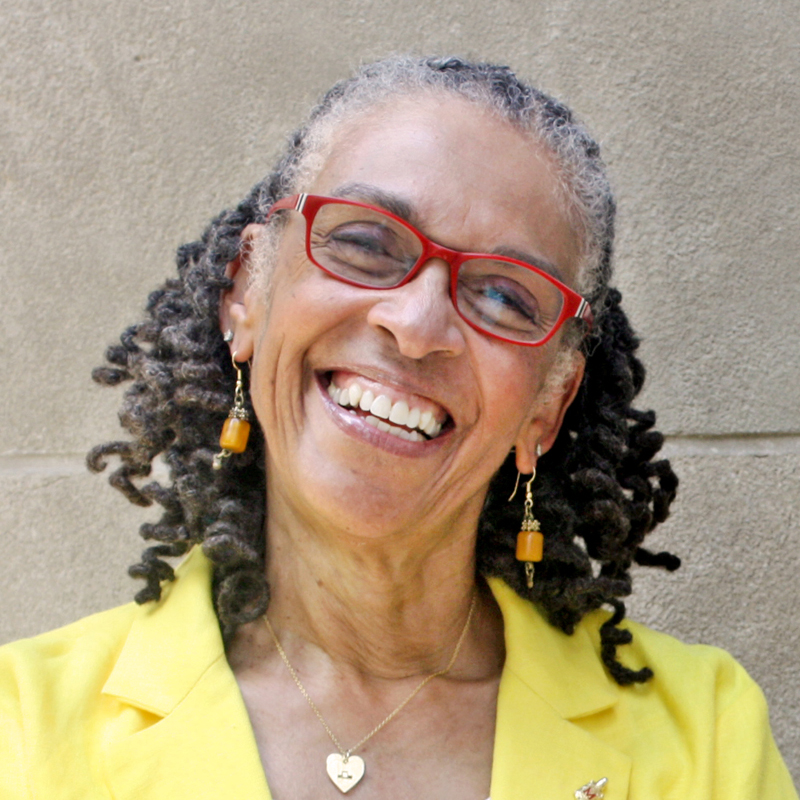Bonnie Thornton Dill

Professor, The Harriet Tubman Department of Women, Gender, and Sexuality Studies
Affiliate Faculty, American Studies
btdill@umd.edu
1102 Francis Scott Key Hall
Get Directions
Bonnie Thornton Dill is Professor Emerita of Women, Gender and Sexuality Studies and Dean Emerita of the College of Arts and Humanities at the University of Maryland. She served as Chair of WGSS for eight years. During her eleven-year tenure as dean, she increased faculty diversity, led development and launch of the campus-wide Arts for All initiative; increased external support for research and scholarship by 50%, raised $80 Million in gifts, and introduced an integrated career-curriculum program for student learning. Her pioneering research on the intersections of race and gender led to the publication of three books and numerous articles and inspired her to found two nationally renowned research centers that developed and disseminated the scholarship known as intersectionality.
She has served as Vice President of the American Sociological Association, President of the National Women’s Studies Association, chair of the Advisory Board of Scholars for Ms. Magazine and as a member of the Board of Directors of the Feminist Majority Foundation. Currently she is co-principal investigator on two Mellon Foundation funded projects: “Breaking the M.O.L.D." a leadership development initiative for historically underrepresented arts and humanities faculty at the University of Maryland, College Park (UMD), the University of Maryland, Baltimore County (UMBC), and Morgan State University and HuMetricsHSS, a national initiative that creates and supports values-enacted frameworks for understanding, evaluating and nurturing scholarly life. She has received many awards, most recently, the 2025 UMD President’s Medal, “the highest honor bestowed upon a member of the university community.”
Publications
The Sandbox, Sisterhood, and a Sociological Journey
Bonnie Thornton Dill publishes essay in new book on comparative race and ethnicity studies
Author/Lead: Bonnie Thornt…Non-ARHU Contributor(s): Margaret L Anderson and Maxine Baca Zinn (Editors)

At a time when movements for racial justice are front and center in U.S. national politics, this book provides essential new understanding to the study of race, its influence on people's lives, and what we can do to address the persistent and foundational American problem of systemic racism. Knowledge about race and racism changes as social and historical conditions evolve, as different generations of scholars experience unique societal conditions, and as new voices from those who have previously been kept at the margins have challenged us to reconceive our thinking about race and ethnicity. In this collection of essays by prominent sociologists whose work has transformed the understanding of race and ethnicity, each reflects on their career and how their personal experiences have shaped their contribution to understanding racism, both in scholarly and public debate.
Merging biography, memoir, and sociohistorical analysis, these essays provide vital insight into the influence of race on people's perspectives and opportunities both inside and outside of academia, and how racial inequality is felt, experienced, and confronted.
Emerging Intersections: Race, Class, and Gender in Theory, Policy, and Practice
This coedited by Dr. Ruth E. Zambrana and Dr. Bonnie Thornton Dill collects ten previously unpublished essays on intersectionality
Author/Lead: Bonnie Thornt…, Ruth Enid ZambranaThe United States is known as a "melting pot" yet this mix tends to be volatile and contributes to a long history of oppression, racism, and bigotry.
Emerging Intersections, an anthology of ten previously unpublished essays, looks at the problems of inequality and oppression from new angles and promotes intersectionality as an interpretive tool that can be utilized to better understand the ways in which race, class, gender, ethnicity, and other dimensions of difference shape our lives today. The book showcases innovative contributions that expand our understanding of how inequality affects people of color, demonstrates the ways public policies reinforce existing systems of inequality, and shows how research and teaching using an intersectional perspective compels scholars to become agents of change within institutions. By offering practical applications for using intersectional knowledge, Emerging Intersections will help bring us one step closer to achieving positive institutional change and social justice.

